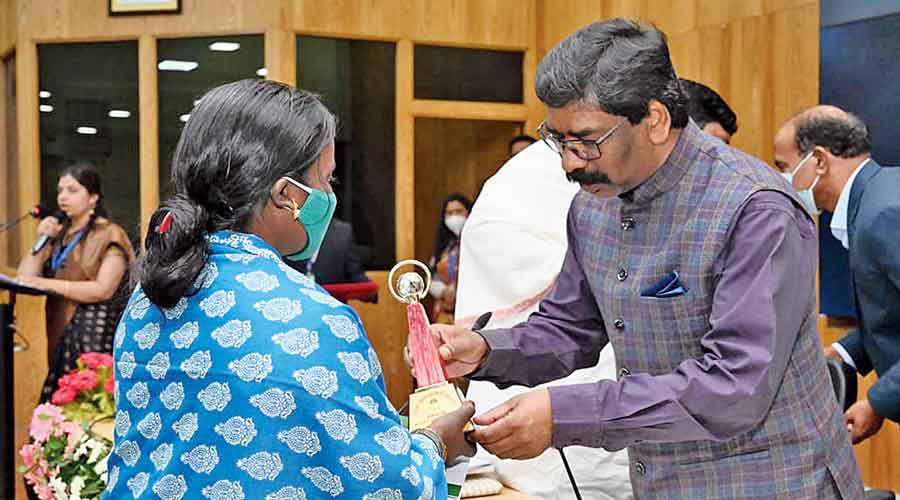The regional office of the National Bank for Agriculture and Rural Development (Nabard) projected a credit potential of Rs 34,458.13 crore for priority sectors in Jharkhand for the next financial year (2022-23) which is 20.23 per cent more than Rs 28,643.64 crore that was projected for the current fiscal (2021-22).
This was revealed in the Nabard focus paper that highlighted potential-linked credit plan for property sectors such as agriculture and MSME during its annual state credit seminar in Ranchi on Wednesday.
The focus paper was released jointly by Jharkhand chief minister Hemant Soren, agriculture minister Badal Patrakekh, chief secretary Sukhdev Singh and others who attended the credit seminar.
The focus paper guides the banks to prepare an annual credit plan and the state government to frame suitable policy guidelines and infrastructure plan for realising their potential envisaged.
Of the total projected priority sector credit potential of Rs 34,458.13 crore, Rs 17,159.62 crore (49.80%) was earmarked for MSME sector while Rs 12,023.53 crore (34.89%) suggested for the agriculture sector.
In the agriculture sector, Rs 7,621.22 crore or 63.39% of the total credit projection for the sector was suggested for sanctioning crop loans while Rs 3,285.22 crore (27.32%) recommended for term loan for agriculture and allied activities.
Despite agriculture and allied activities being the mainstay of Jharkhand economy and major source of employment, income generation and food security, the annual average income level of a household of the state is the lowest in the country at Rs 5,854 per household, the focus paper informed, quoting a financial inclusion survey conducted by Nabard during 2016-17.
The MSME scenario is not encouraging either, it further informed.
Though Jharkhand has 15.88 lakh enterprises that account for 2.5 per cent of the total MSME in the country, 99 per cent of those are micro and only 10,000 are small enterprises, it informed.
The growth rate of Jharkhand that was 7.3% from 2011-12 to 2014-15 had dropped to 4.8% between 2014-15 and 2018-19 due to unusual contraction in the real GSDP (gross state domestic product) by 6.2% during 2015-16, the focus paper revealed.
Some farmer producers organisations and self help groups were also facilitated by the dignitaries, including chief minister, on the occasion.











